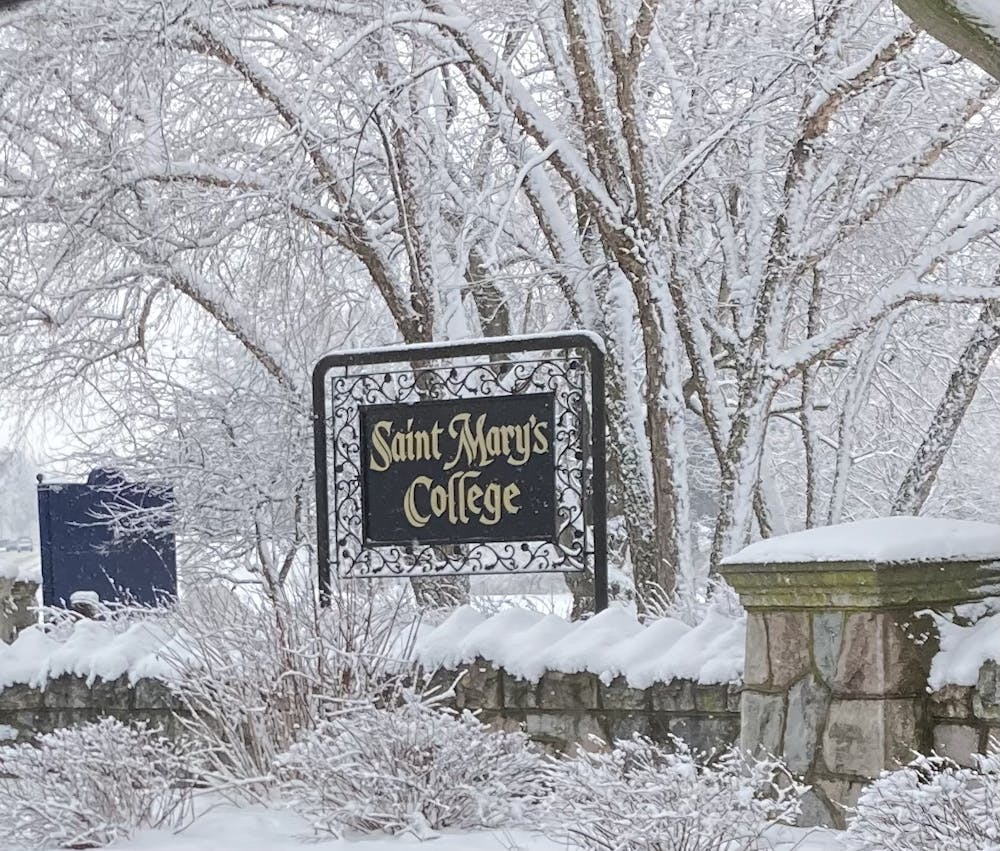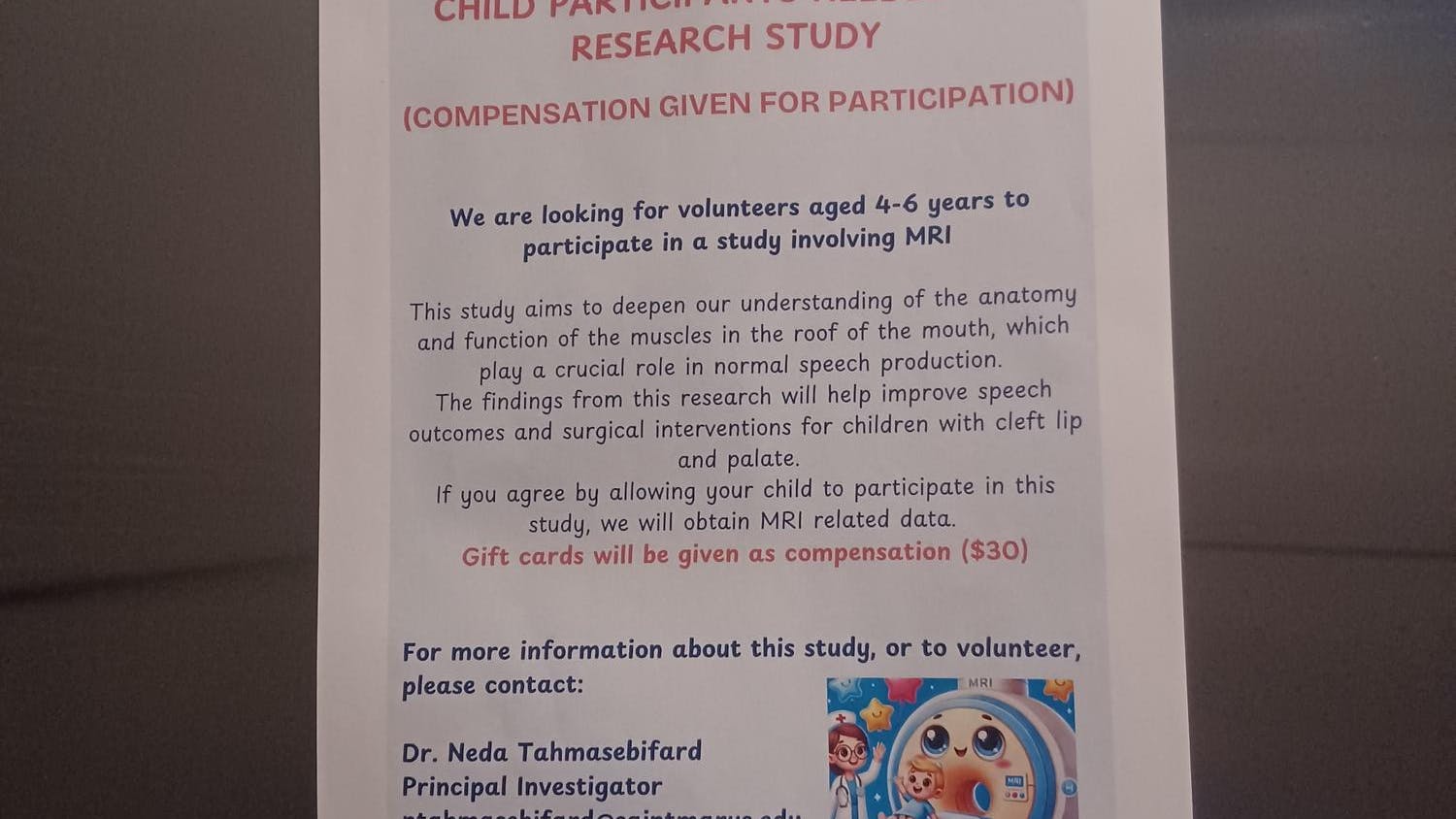Saint Mary’s College will offer a wide variety of courses next semester, including a course on fabric printing and one on philosopher Ludwig Wittgenstein.
Julie Tourtillotte, a professor at Saint Mary’s and art program department chair, teaches drawing, fibers and video art classes with a focus on fabric constructions, drawings and prints. Her art has been exhibited at the Stark Gallery in Phoenix, Ariz., the University of Dallas, the Indianapolis Museum of Art and The National Museum for Women in the Arts in Washington, D.C., among others.
This past semester Tourtillotte taught Drawing I, a foundation drawing course. The course is a requirement for art majors but also satisfies general education requirements. “There are no prerequisites. So some people are coming in with a lot of drawing experience and some may have very little,” Tourtillotte said.
Throughout the course, students work with a variety of subject matters including still life and landscape, while also exploring a variety of design elements and principles. “We expose the students to a lot of different drawing tools and media. So in addition to working with pencil and charcoal, we also introduce the students to ink," Tourtillotte added.
During Spring semester, instead if Drawing I, Tourtillotte will be teaching Drawing II. This course also does not require prerequisites while offering a continuation of the work done in Drawing I through still life and landscapes. Unlike Drawing I, students in Drawing II will work with color, learning about color theory with colored pencils and ink.
Tourtillotte will also be teaching Fabric Printing, a fibers course. According to Tourtillotte, the course “looks at different ways to print color, designs, patterns, images on cloth.” The class will begin with a Japanese rice paste resist technique, also known as Kanazome, and later spend a large portion of the semester working with screen printing.
In her other fibers course, Sculptural Knitting and Crochet, students will learn about both knitting and crochet techniques through creative projects.
Philosophy professor Patricia Sayre will be teaching an introductory course to philosophy that also fulfills the Saint Mary’s writing requirements. “The aim of the course is not only to give students an acquaintance with the history of philosophy, but to make interaction with these thinkers an occasion for beginning to articulate their own philosophical worldviews,” Sayre said.
The class will introduce students to philosophy, beginning with the history of philosophy in classical Greece. Students will read Plato’s works “Symposium” and “Republic,” considering how Plato’s worldview can be incorporated into religion. From there, the class will read several medieval philosophers and then move towards examining at the modern world, learning about rethinking to accommodate the newly emerging scientific approaches. Through Nietzsche, students will learn about postmodernity, finally reaching the 20th century which will lead back to lessons from Plato’s “Symposium.”
Sayre will also be teaching an introduction to Logic course required for all philosophy majors and minors. The historically-focused course will teach students how to reason logically and what it means in terms of various systems of logic that have been developed in parallel to developments in intellectual history.
“In addition to picking up logical skills and developing an understanding of the history of logic, we also frequently step back from the systems we are studying to consider the philosophical assumptions on which they rest, with short paper assignments that provide students with the occasion for reflecting on those assumptions, and, perhaps, challenging them,” Sayre said.
In addition, Sayre will teach an upper level course on Wittgenstein, the philosopher who she says has made the biggest impact on her life. “If the coming semester is anything like semesters in the recent past, we are likely to get so engrossed in the work of the early Wittgenstein we may not get on to the later,” Sayre said. Students will undergo a deep dive into the 72 pages of Wittgenstein’s “Tractatus Logico-Philosophicus.” His writing claims to solve all the problems in philosophy and, by the end of the semester, students should be able to see how he does it, Sayre said.










